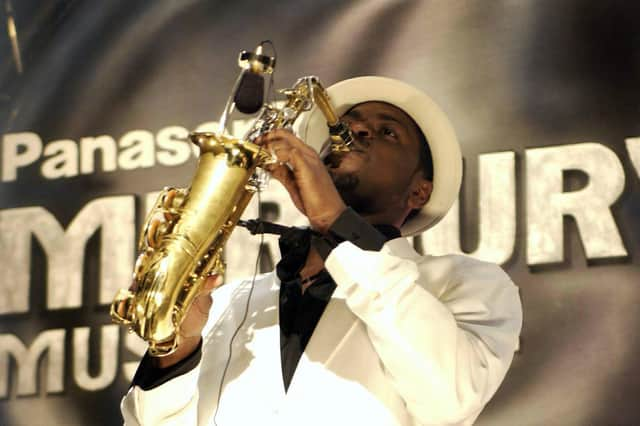Covid recovery: Edinburgh’s summer festivals can rekindle the spark of communal life – Julia Amour


I’m sure many readers can imagine how excited I am and what it will mean to hear live music for the first time in more than a year. Multiply that excitement by a few hundred thousand and you start to feel the power that the return of the summer festivals over the next six weeks can bring to restoring our collective sense of joy and wonder.
Covid taught us the heart-breaking lesson that to stay safe we had to stay apart; now it’s been said that we need to relearn ways to stay safe while coming together. With Covid cases rising, we know that some may have doubts. Against that backdrop, why do we feel strongly that a reopening of live culture is right and needed?
Advertisement
Hide AdAdvertisement
Hide AdThe way so many of us turned to music, books and onscreen drama during lockdown showed beyond doubt how important culture is for human well-being. We believe that live arts can be a beacon of hope after a dark year and give people reasons to come together again. That’s why we’re taking the first carefully managed steps in restarting Edinburgh’s peak festivals season.
Commentators who warn against a return to ‘business as usual’ are missing the point. This summer will be far from that, with around ten per cent of pre-Covid event levels.
Although it’s a fraction of the global gathering Scotland’s capital is famous for, we’re determined the work will be as exciting as ever and will enable artists to show that they can come back safely and help the restart of live work across the country.
A few might prefer to see the city stay silent, but we’re heartened by the huge support for the return of live performance and the high degree of confidence from the health professionals who’ve scrutinised our plans at every stage.
The way the festivals transform the city will look and feel different. Several have made the leap and moved performances outdoors and citywide, with funding support helping to create safe environments – from the International Festival building three temporary pavilions, to nine of the Fringe’s established venues moving outside including into a multi-storey car park.
The Book Festival will have a new home at the College of Art while keeping the ‘village green’ feel with an open courtyard at its heart. The Art Festival’s programme takes place across 20-plus galleries and sites, and the Film Festival’s return in August includes open-air screenings in the city centre and beside the Forth.
But on a sadder note, there will be no chance to take a grandstand view of the castle this year after the Tattoo was forced to cancel due to the risks of staging their large-scale spectacular with no Covid insurance. This highlights the real fragility of the whole live events landscape – and it’s even more acute for smaller festivals and the freelancers who make them all happen.
There is some wishful thinking that this summer’s dispersed festival infrastructure could be a sign of things to come. The truth right now is that it’s ruinously expensive for many artists and producers who, without ongoing investment, may not survive to next year at all let alone help us boost city and national recovery. If we want them to recover and evolve, we will need clear-headed debate and supportive policies not additional hurdles.
Advertisement
Hide AdAdvertisement
Hide AdThe balance between local and global programming will also look rather different, with a strong line-up of homegrown acts, many with an established Edinburgh Festivals pedigree. This shouldn’t be confused with a change of policy: a long-standing criticism that the festivals don’t reflect local interests isn’t borne out by the fact that in pre-pandemic years, over 2,000 featured artists and 60 per cent of audiences were based in Scotland.
Pitting local and international people and interests against each other is surely invidious anyway: our festivals show Scotland to the world and the world to Scotland – and we believe it’s important now more than ever to remain outward-looking.
Edinburgh’s position as a capital city with a leading global reputation has been taken for granted in the past decade while austerity has taken its toll. Post-Brexit and post-Covid we can’t assume that this reputation will return on its own, so we are determined to nurture those international links, albeit this year mainly through digital channels.
The past year has arguably kick-started a digital revolution we knew was overdue and there is no doubt our digital programmes are here to stay, increasing accessibility at home and abroad.
For those who can’t or don’t want to come to the festivals, the festivals can now come to you. However digital will never be our main focus. We are conscious of the digital divide and work with community partners to ensure our programmes reach as widely as possible. And just as music streaming made gigging the lifeblood of musicians’ income, we need live events not only for the sake of audiences and communities but crucially to support our performers, technicians, suppliers and wider leisure economy.
So as my excitement builds for my first live concert tonight, I hope that over the next six weeks everyone will celebrate the return of our festivals and the rekindling of the communal life they bring to our great cultural capital.
Julia Amour is director of Festivals Edinburgh
A message from the Editor:
Thank you for reading this article. We're more reliant on your support than ever as the shift in consumer habits brought about by coronavirus impacts our advertisers.
If you haven't already, please consider supporting our trusted, fact-checked journalism by taking out a digital subscription.
Comments
Want to join the conversation? Please or to comment on this article.
